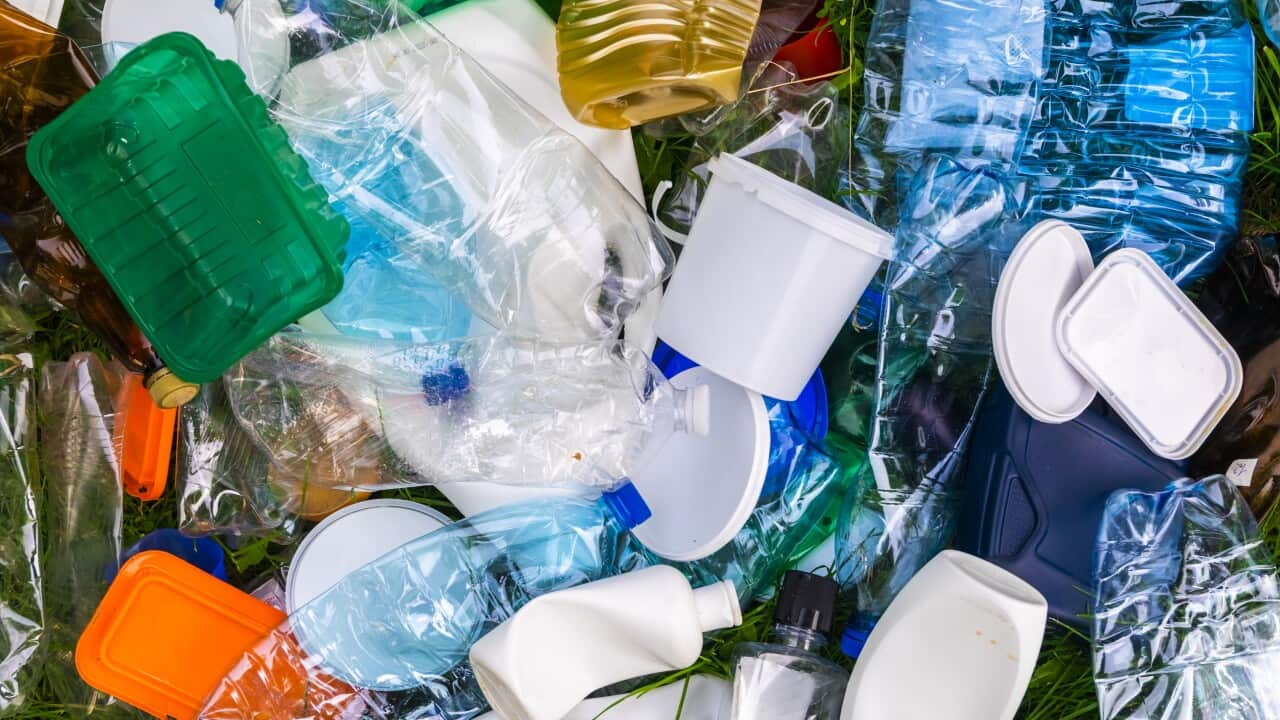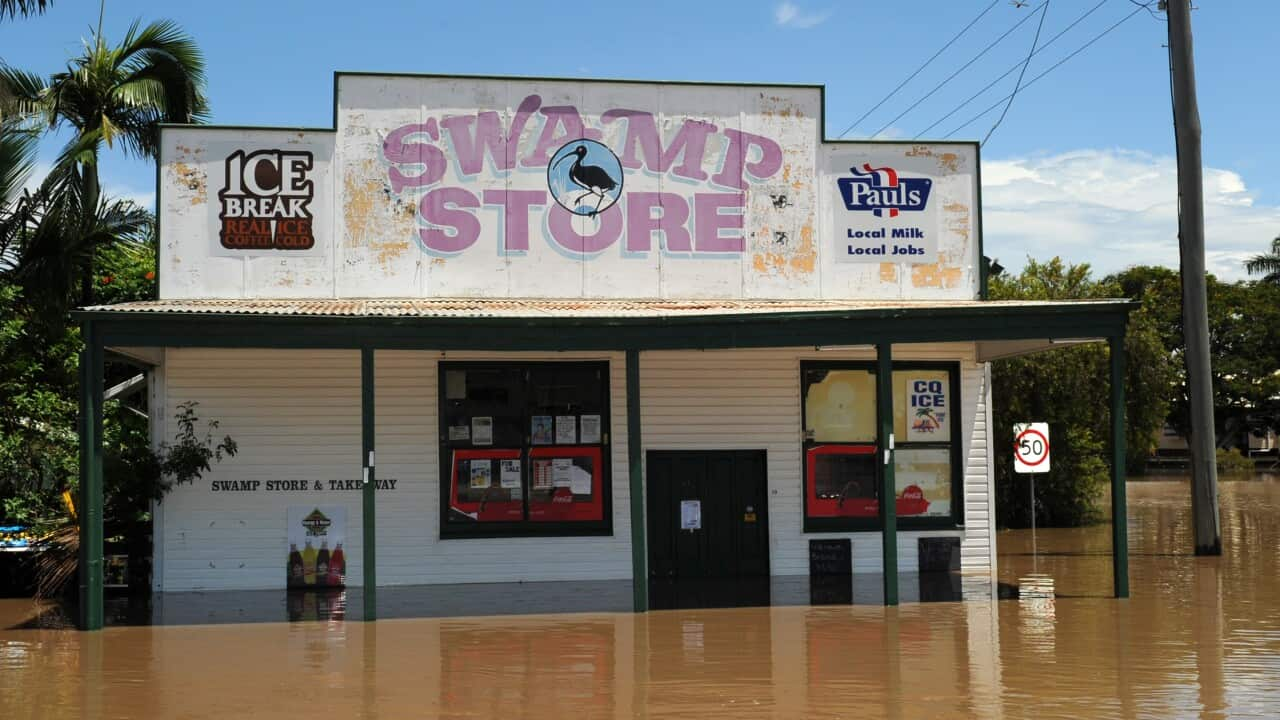Key Points
- US singer Billie Eilish has won the inaugural Amplifier Award.
- The award was designed to recognise environmental advocacy and sustainability in the music industry.
- Live music can harm the planet through energy use, carbon emissions, single-use plastic and other waste.
Billie Eilish has been honoured for environmental advocacy, winning the inaugural Amplifier Award, presented by Universal Music Group and REVERB, a not-for-profit working to improve sustainability in the arts industry.
The award recognises the artist who best exemplifies "commitment to, and achievement of, measurable steps to reduce their environmental footprint and support nonprofit causes through direct fan engagement at shows, online and beyond.”
So what does it mean for a music tour to be environmentally friendly, and how could environmentalism change concerts and festivals?
Who is Billie Eilish, and what is her history with sustainability?
Billie Eilish is a 21-year-old American singer-songwriter, who first gained public attention in 2015 with her debut single Ocean Eyes.
Since then, she has released two albums and won a series of accolades including seven Grammy Awards, two American Music Awards, three Brit Awards, a Golden Globe and an Academy Award.
She is a vegan, and partnered with REVERB ahead of her 2022-23 world tour to offer plant-based foods, eliminate single-use plastic water bottles, and raise funds for climate projects.
Her merchandise featured clothing made from upcycled fabric, vinyl records made from recycled materials, and no plastic bags for items purchased.
The singer also launched "Overheated", a six-day climate seminar and corresponding documentary, with proceeds from ticket sales going to Reverb, and Support + Feed, a charity that promotes plant-based diets
At the 2022 Met Gala, she wore an upcycled Gucci gown.
Eilish's tour started in February 2022 and is due to finish in August this year.

Billie Eilish wore a Gucci gown made from upcycled materials to the 2022 Met Gala. Source: AAP / AP
“I know I can always do more, and I feel really impressed and excited that you guys are actually making this a priority and doing your part," she said.
"I spend a lot of time feeling really anxious about the fact that … I feel like a lot of people, and especially a lot of people in the business, don’t care very much [about sustainability]."
How does live music harm the planet?
Traditionally, music tours and festivals have not been environmentally friendly.
Berish Bilander, chief executive officer at Green Music Australia, which works to help Australian musicians become more 'green', says international music tours can be harmful for the planet through energy use, carbon emissions, and merchandise.
"Anything from selling large numbers of merchandise that haven't necessarily been made ethically or with high green credentials, sometimes bands use pyrotechnics on stage, or the waste protocols of a venue might not be best practice in which case you're creating a lot of landfill," he said.
"Then obviously the travel impacts; the vast majority of emissions that come from most festivals and also a lot of stadium gigs are the people travelling to the concert ... the history of music has a pretty large footprint."
According to Green Music's Sound Country guide, festivals and events can also implement initiatives such as electric vehicles and transport options, using renewable energy, installing water stations for reusable water bottles, opting for compost toilets, and selling plastic-free merchandise and food.
Mr Bilander says artists - particularly those playing large world tours - have a duty to try to reduce the emissions from their tours.
"If you look at one of the largest tours, where she is playing to 288 million fans for the Reputation stadium tour, we guess that that tour created around 52,000 tonnes of emissions," he said.
"That is really significant and it needs to be taken seriously, and I think year on year, artists have a responsibility to try to ... first of all account for what their impact is, and offset anything that can't be avoided, and aim to reduce it."
What could this mean for the future of music tours?
When it comes to the future of touring, Mr Bilander says more artists appear to be concerned about their emissions.
"There are more and more artists that are really concerned about their footprint, and therefore are going to be making decisions that may well impact on coming to far-flung places like Australia," he said.
"Whether or not it comes from festivals or venues or other businesses ... I could certainly imagine a future where there's a carbon budget to program the annual events for any given venue, and they may have a certain amount of carbon they're willing to use up, after which point they're not able to bring in a band from overseas."
Josh Meadows, a spokesperson for the Australian Conservation Foundation, told SBS News he anticipates changes to the way tours are planned and executed in the coming years.
"I would expect we're still going to see a lot of big international tours coming to Australia, but I hope we're going to see them be more creative and careful about the way they tour," he said.
"With good planning, touring musicians can make a difference."
Mr Meadows also says in conversations it is important to understand the impact of tours and the music industry are small compared with coal and gas companies.
"It's great to see Billie Eilish and other musicians starting to think about ways to do what they do more sustainably, and absolutely every one of us can and must think about the way we live if we're going to get on top of this climate problem
"But the big culprits are a lot of the coal and gas companies that are major polluters, and many of them are looking at ways to extend their lives rather than get out of pollution, and that's the biggest problem with climate change at the moment."













